The pastor and bestselling author reveals what God has been teaching him through terminal cancer
Tim Keller is arguably one of the most recognisable Christian leaders on the planet.
Yes, he led a large church for three decades, but that’s not the main reason for his reputation; megachurch pastors who preach to thousands in the US Bible Belt tend not to make many waves beyond their own cultural pond. Keller’s sermons and books, however, have travelled the distance.
Decades of engaging with New York’s cosmopolitan residents as leader of Redeemer Presbyterian Church have given Keller a prominent platform in an increasingly post-Christian West, and his even-handed approach has meant he has managed to transcend doctrinal siloes. The pastor’s own tribe is Calvinist, but he wears those allegiances lightly, with his books and podcasts embraced by Christians across the theological spectrum.
When Keller announced he had been diagnosed with advanced pancreatic cancer during the 2020 lockdown, thousands across the globe pledged to pray for him as he underwent treatment. Despite a terminal prognosis and against all the odds, the 72-year-old is still alive. Quoting from Psalm 90 - “Teach us to number our days, that we may gain a heart of wisdom” - Keller credits cancer and, more specifically, facing his own mortality, as the catalyst for the transformation of his prayer life in recent years. It forced a complete pause in an otherwise hectic life, he explains.
Remarkably, the diagnosis and ongoing treatment have not stopped him from writing new books. His latest title Forgive (Hodder & Stoughton) continues his legacy of speaking gospel truth into the culture wars of our postmodern world.
The way you look at God – the way you look at everything – changes when you realise time is limited and you are mortal
Keller’s style of intelligent, winsome cultural engagement has won him global respect, however his approach was recently called into question by a number of Christians who had once followed his lead. A few widely shared articles asked whether a more militant method was needed now cultural elites no longer look kindly upon Judeo-Christian values but, instead, positively seek to destroy them. Was Keller being too kind?
Keller recognises that many of his critics want to win a political war in the US. But he maintains that he has no more interest in waging that kind of campaign than Jesus did. And Jesus was pretty clear about loving those who oppose you too. Not that Keller is a pushover. He says his approach was forged in New York City, which he insists was “never a neutral or positive world”. Nevertheless, he believes there is “room for differences of opinion among Christians who are united on the gospel”.
As we increasingly see the right-versus-left culture wars of the US Church being imported to UK shores, let’s pray that Keller’s winsome approach prevails.
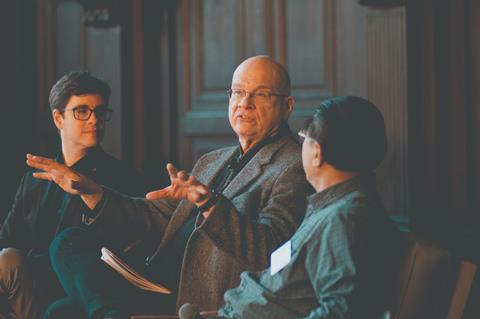
What have been the highs and lows of the past couple of years?
I was diagnosed with stage four pancreatic cancer in May of 2020 – that’s a very deadly kind of cancer – and yet I’ve just celebrated my third Christmas with my family. I had two years of chemotherapy and now I’m in an immunotherapy drug trial and that is working too. So my cancer is still there – pancreatic cancer can break out anytime and take you – and yet we’ve been able to keep it somewhat at bay for a pretty long time. So we’re very grateful.
You have to constantly have scans and tests. We have a word – “scanxiety” – because you know that it doesn’t matter how good the last one was, this one could show that it’s out of control. So the lowlights are every time you’re waiting for the test results. That’s obviously one, and the other is that every little ache and pain that, for most of your life, you say: “Well, that’s probably nothing” and now you say: “Is that the cancer?”
The highlights are – and this is going to sound like an exaggeration – but my wife and I would never want to go back to the kind of prayer life or spiritual life we had before the cancer. I really thought that I had a good prayer life. And when I broke through into another dimension, I realised that, frankly, my prayer life wasn’t very good.
What specifically did you do to change your prayer life?
It came in two stages. When I was in my 50s, I had thyroid cancer. And there was a period where, you know: “He maketh me to lie down” (Psalm 23:2). And during that time, I actually did have something of a renaissance in how I prayed. That’s when I got into the Psalms at a much deeper level and when I started praying them more often.
I also started to do a better job of learning how to meditate. Martin Luther’s barber asked him: “Master Luther, how should I pray?” He wrote a 40-page letter to him about prayer, and he talks about a way of meditating so that it warms your heart up. You don’t go from Bible study into prayer; you go from Bible study into meditation into prayer.
The difference between meditation and prayer is very simple. If you take a look at Psalm 103:1-2: “Bless the Lord, O my soul; and all that is within me, bless his holy name. Bless the Lord, O my soul, and forget not all his benefits” (KJV). Now, who’s he talking to? It’s not a prayer. [The psalmist is] talking to himself. And what he’s actually doing is saying: do you really understand what this means? Do you see the benefits?
I usually tell people who are going through anxiety, discouragement and that sort of thing: immerse yourself in the Psalms, because you’ll find ways to process that particular emotion before God.
That all happened 20 years ago. When I got cancer this time, it turbocharged all of those things. God was obviously getting me ready with thyroid cancer for the pancreatic cancer.
Do you pray for healing?
I pray at least twice a day for complete healing, even though my doctor told me there is no cure. God can do it, or he doesn’t have to do it. I mean, this is years and years of experience with him. When I look back on things that he did for me that, at the time, I thought were awful, now I realise [they] were actually good for me. I say: “Look, he knows.”
When I got this cancer diagnosis, I was 69 years old. Kathy and I thought we’d feel a lot older when we got to 69. We always thought we’d feel like: “Hey, you know, my life’s over.” No, no, no. So it’s not like we haven’t struggled. Ultimately, I’m praying for healing. And the fact that I may not get that is something I have to say: “OK, God knows.”
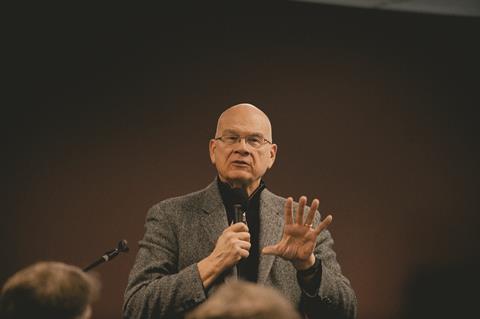
Is there anything else you’ve learned in this time that you didn’t know before?
Everyone knows they’re going to die, and everyone, in some way, represses that and lives as if they’re never going to die.
When I had thyroid cancer the first thing the doctor said was: “This is very treatable.” When I had pancreatic cancer, my doctor said: “You’re going to die of this, sooner or later, because we don’t have a cure for it.” I realised, at some deep level, I never really did believe I was going to die; I just didn’t. There is some kind of denial that just will not go away until you actually have a doctor saying you’re going to die within weeks.
The way you look at God, the way you look at your spouse – the way you look at everything – changes when you realise time is limited and you are mortal.
I sense that we’re losing our grip on the value of forgiveness
Do you have any suggestions on how to comfort non-Christian relatives who have cancer, especially if they, understandably, don’t really want to think about dying, or God?
Joseph Bayly wrote a book called A View from a Hearse in the 1960s, after three of his seven children died. He was at a funeral and a friend sat down next to him and said: “I know the Lord’s working in this. I’m praying for you. I know that all things work together for good, and we just don’t understand his ways. We really have to trust in him; he’s compassionate. It’s so hard, but you know, we really can trust him.” Joe said: “I couldn’t wait for him to leave.”
And then, he said: “Another friend came by and sat down next to me. He never said anything until I said something. He was economical with his words, basically followed my lead and just showed a tremendous amount of support. I hated to see him go.”
I’ve never forgotten that story. When it comes to someone that doesn’t share your faith, I think the most important thing is to just show up for them and not push faith down their throat, unless they ask questions or say: “Hey, put in a prayer for me with the guy upstairs. Not that I believe in him. But I wouldn’t mind…” Then you have an open door. But you need to let that person open the door to talking about faith. Otherwise just be incredibly loving and supportive.
Jesus said the gates of hell will not prevail AGAINST HIS CHURCH, and there’s no expiration date on that offer
What are some of your main fears for the Church in the West right now? And what gives you hope?
When people lose their hope that the Church can actually thrive in our modern culture, there are three things they can go into: one is compromise on doctrine, on historic faith and practice, and you say: “We’re just going to have to change that because we’ll never get accepted.”
The second possibility is you withdraw into high walls around the Church, and basically just try to keep hold of your kids and grow the Church biologically, like the Amish. And the third is you get very combative and say: “We’re going to take over the culture and let Christians run things.” I fear all three of those are possibilities in the United States.
But I have three hopes: the growth of the global Church – there’s no doubt about it, Christianity is not going away. It’s growing, and it will continue to grow. The second hope I have is that Jesus said the gates of hell will not prevail against his Church (Matthew 16:18), and there’s no expiration date on that offer. And lastly, I actually think secularism looks exhausted. It doesn’t look like it’s confidently saying: “We have all the answers to the basic human problems.”
So [when] you put all that together, I have a lot of hope. But I still have a lot of fear.
Why is your latest book on the topic of forgiveness?
I sense that we’re losing our grip on the value of forgiveness. We have more and more people showing that they will not forgive; they don’t forgive. They’re pretty harsh and combative in their general demeanour and the way in which they talk to people. Some say forgiveness is not a good idea. And what I tried to say in the book is partly that I understand that, because forgiveness, in many cases, has been abused.
If you say to a woman in your church who has been sexually abused: “You have to forgive your perpetrator. He repented, so you need to meet together and you have to forgive and you can’t go to the police,” that’s an abuse. The reality is that forgiving is not opposed to seeking justice.
As a matter of fact, if you don’t forgive, you won’t seek justice, you’ll seek vengeance – which goes past what justice demands and always eats you up. So you need to forgive and pursue justice. It’s not either/or but, right now in our culture, the mindset is that forgiveness is the opposite of justice. And since everybody – but especially younger people – are rightly concerned about justice, forgiveness doesn’t seem to fit with that. So I thought I’d write a book that lifted up the biblical material, but tried to apply it to our cultural moment.
What would you say to someone who knows they should forgive someone, but wants to stay angry with them?
Forgiveness does not mean automatically learning to trust the person again. They have to re-earn trust. And if they don’t re-earn trust – if they don’t change – then I don’t think you have to be as intimate. Some people say: “If I forgive, that means I have to go back to the same relationship.” But it’s never loving to make it easy for somebody to sin against you. If you’ve got a person who is very intemperate in what they say, that doesn’t mean you have to allow them to be intemperate in the way they talk to you.
Forgiveness means saying: “I am not going to revenge myself on that person.” And secondly: “I’m not going to keep replaying the recordings of what that person did to me.”
I pray at least twice a day for complete healing, even though my doctor told me there is no cure
The Bible says: “Vengeance is mine…saith the Lord” (Romans 12:19, KJV). So we say: “Lord, you know what this person deserves, I don’t. I don’t have the right to inflict judgement on them because I’m a sinner. I don’t know what they deserve, because I don’t know everything they’ve gone through. And actually, I don’t have the power to give them what they deserve. So I’m not going to pay them back.”
Meanwhile, when it comes to your relationship with them, I can give you one example. There was a woman whose father abused her verbally. She said: “I’m going to call you every Tuesday night, Dad, because you’re my dad. But I want you to know that if you start to abuse me, I’m not going to say: ‘stop it’, and I’m not going to get angry at you. I’m going to hang up. And then I’m going to call you next week, because I’m not mad at you. I’m just trying to help you. And it’s not right for you to do that.”
For three weeks in a row, he did the normal thing, and she just said: “Dad, I’m hanging up.” But, eventually, he changed. She was holding him accountable and still forgiving him.
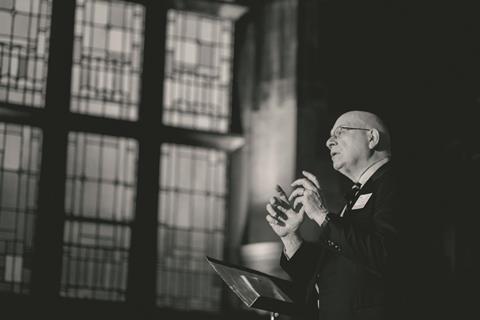
What do you wish you knew at the beginning of your cancer diagnosis that you’ve learned in the past few years?
I wish I’d been able to [understand] how mortal I am without getting cancer. Psalm 90 says: “Teach us to number our days that we get a heart of wisdom” (Psalm 90:12, ESV). I know what that means now. I don’t know how you gain that [understanding] before you have something like this; there’s a breakthrough in the way in you look at everything.
Kathy’s mother had five children. She used to say to Kathy: “I want to write a book someday: How to Raise the First Child Like the Fifth, which meant: not so worried; really relaxed. And Kathy said: “That’s impossible, Mum. There’s no way you can raise the first child like the fifth because you just have to go through [things like] having that first injection and being worried about it. And by the time you get to the third, fourth, fifth child, you realise: they’re resilient.”
It’s the same with me. There’s no way to get to where I am now without going through the doctor saying: “You’re going to die from this.” I wish there had been, but there wasn’t. But I’m glad I am where I am.
This interview was conducted as part of a live Premier Unbelievable? show, with some questions submitted by participants. For more information see premierunbelievable.com
To hear the full interview, listen to Premier Christian Radio at 8pm on Saturday 4 February or download ‘The Profile’ podcast














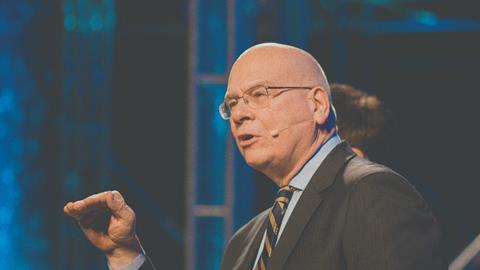


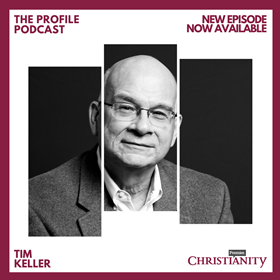
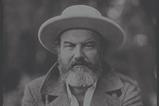
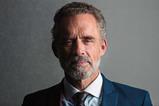

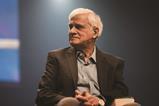

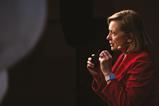




















No comments yet